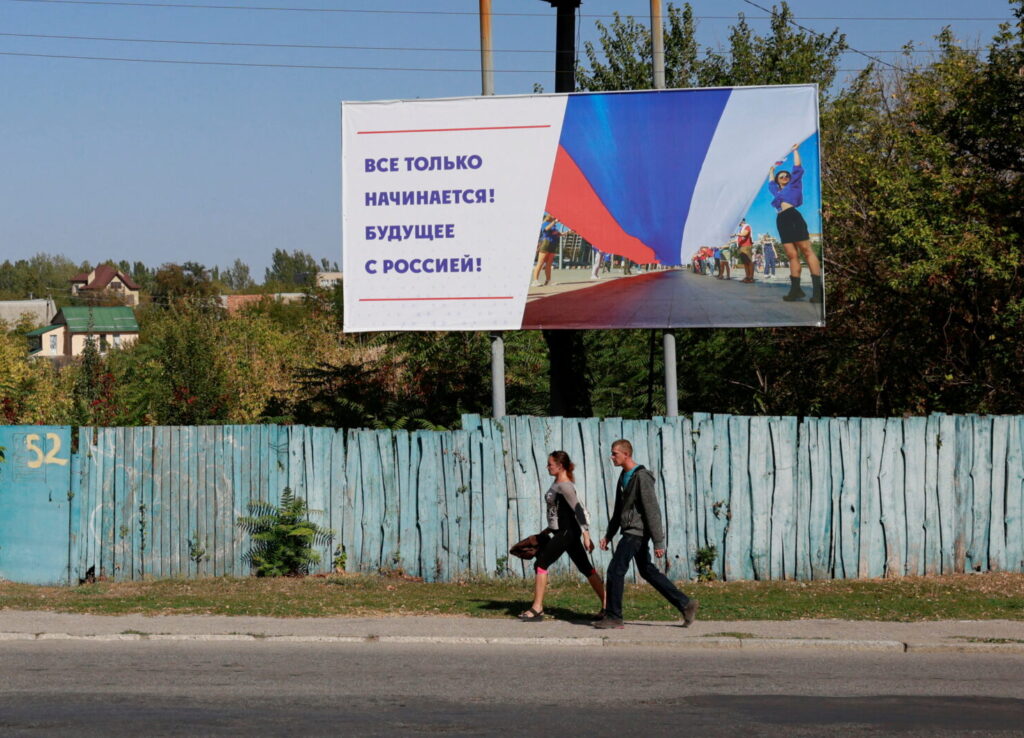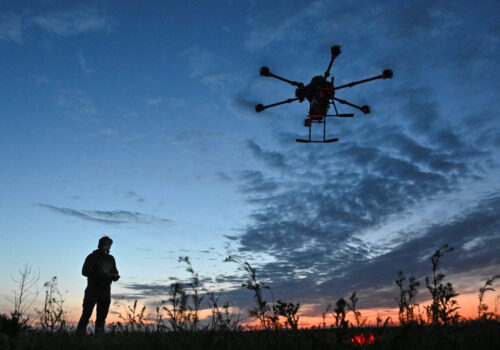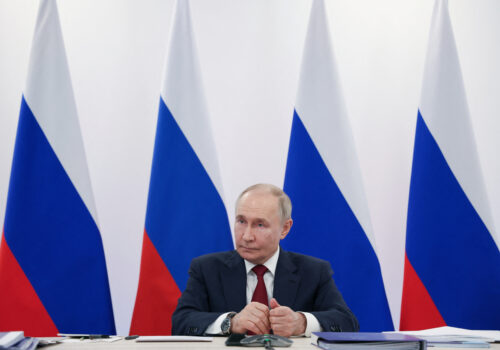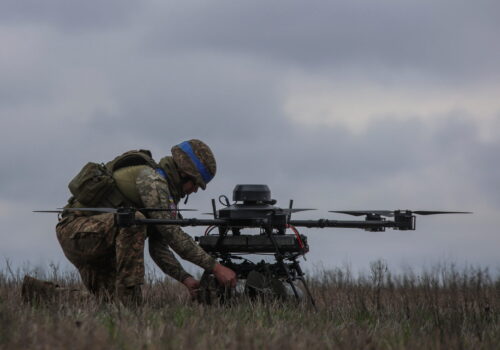In recent months, US-led efforts to initiate a Russia-Ukraine peace process have focused primarily on the issue of potential Ukrainian territorial concessions. But as negotiating teams discuss technical details and draw lines on maps, almost no attention is being paid to the desperate plight of the millions of Ukrainians currently living under Russian occupation.
Throughout occupied Ukraine, the Russian authorities are seeking to consolidate their control by eradicating all traces of Ukrainian statehood and national identity while imposing a reign of terror on the civilian population. If these Russian occupation policies are allowed to pass unchallenged in the international arena, it will set a disastrous precedent for the use of force against civilians and the weaponization of national identity in other contested regions globally.
From the very first days of the full-scale invasion in February 2022, it was clear that Russia intended to entrench itself firmly in occupied regions of Ukraine. Russian troops often arrived armed with lists of local community leaders including elected officials, journalists, activists, religious figures, and military veterans. Those who refused to cooperate were likely to be detained before disappearing into a vast network of Russian prisons and camps.
Ukrainian detainees are being systematically subjected to torture and other human rights abuses, according to an international investigation led by the French group Forbidden Stories together with thirteen media outlets including Britain’s Guardian newspaper, the Washington Post, and Le Monde. While it is not possible to calculate exactly how many Ukrainian civilians have been abducted in the occupied regions, UN officials have concluded that the large scale and systematic nature of the disappearances qualifies as a crime against humanity.
Stay updated
As the world watches the Russian invasion of Ukraine unfold, UkraineAlert delivers the best Atlantic Council expert insight and analysis on Ukraine twice a week directly to your inbox.
Those who remain in areas of Ukraine under Kremlin control face a regime of forced russification encompassing everything from language and the media to education and religion. Place names have been changed to reflect the new Russian realities, with the curriculum in local schools transformed in line with the Kremlin’s anti-Ukrainian imperial dogmas. Parents who attempt to shield their children from classroom indoctrination are being threatened with loss of custody.
Ukrainian residents in the occupied regions of the country have also come under increasing pressure from the Kremlin to accept Russian citizenship. Anyone who refuses to take a Russian passport risks losing access to a range of essential services including healthcare. They also face restrictions on property rights along with the ability to run a business and use banking services.
This passport campaign has intensified significantly in recent months, with Russian President Vladimir Putin issuing a decree announcing that Ukrainians living under Russian occupation have until September 2025 to accept Russian citizenship or face possible deportation from their own homes. Understandably, Moscow’s ruthless tactics are proving difficult to resist. Kremlin officials claim that by March 2025, Russian passports had been issued to approximately 3.5 million people in occupied Ukraine.
Moscow is accused of engaging in religious persecution throughout the occupied regions, with all Christian denominations other that the Kremlin-linked Russian Orthodox Church facing various degrees of restrictive measures and oppression. Ukrainian Foreign Ministry officials stated in spring 2025 that the Russian occupation authorities have killed dozens of clergy members over the past three years while damaging or destroying hundreds of churches.
Eurasia Center events

Russia has been careful to prevent information about conditions in occupied Ukraine from reaching the outside world. All independent media sources have been shut down throughout the occupied regions, and have been replaced by new Kremlin-controlled outlets. Individual journalists have frequently been among those targeted for oppressive measures including physical abuse and imprisonment.
One of the few reporters to shed light on the horrors unfolding in Russian-occupied Ukraine was Ukrainian journalist Viktoriia Roshchyna, who visited areas under occupation on multiple occasions before being captured by the Russian authorities in summer 2023. Roshchyna died after a year in Russian captivity. When her body was returned to Ukraine in early 2025, it showed signs of torture.
From a military standpoint, it may not currently be feasible to liberate all of the Ukrainian regions held by Moscow. Nevertheless, the crimes being committed by the Kremlin in occupied Ukraine are unprecedented in modern European history and cannot be ignored.
It is vital that the human rights of Ukrainians living under Russian occupation feature prominently in any peace process. This includes the rights of those currently being held in Russian jails. Ukraine’s Western partners must maintain or increase sanctions pressure, while also expanding support for Ukrainian civil society and raising awareness about Russia’s actions among international audiences.
Looking ahead, longer term investments are also needed to help document war crimes and support Ukrainian victims of the Russian occupation. Ultimately, the most meaningful response to Russia’s campaign against Ukrainian identity is to make sure Ukraine is in a position to not only survive but thrive as an independent European nation.
Kateryna Odarchenko is a partner at SIC Group Ukraine.
Further reading
The views expressed in UkraineAlert are solely those of the authors and do not necessarily reflect the views of the Atlantic Council, its staff, or its supporters.

The Eurasia Center’s mission is to enhance transatlantic cooperation in promoting stability, democratic values, and prosperity in Eurasia, from Eastern Europe and Turkey in the West to the Caucasus, Russia, and Central Asia in the East.
Follow us on social media
and support our work
Image: People walk past billboards dedicated to the anniversary of the annexation of Russian-controlled territories of the Zaporizhzhia Region, in Melitopol, Russian-controlled Ukraine, October 2, 2024. (REUTERS/Stringer)




